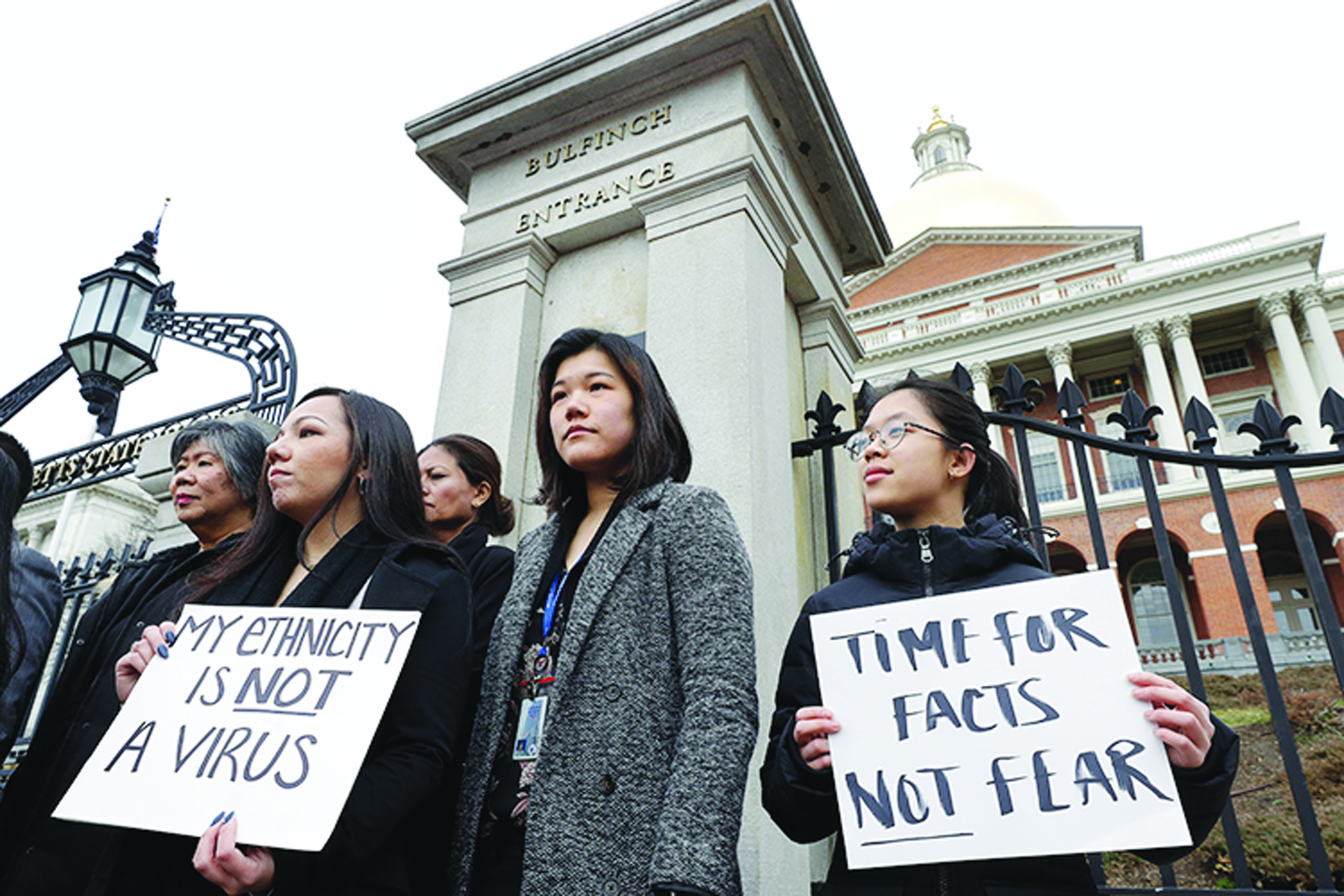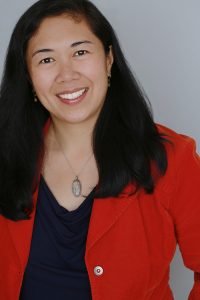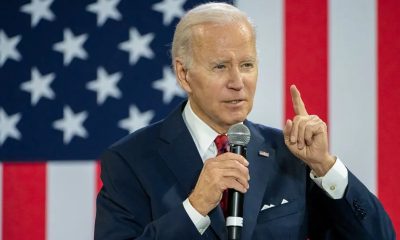Bay Area
Opinion: Racist Harassment of Asian Health Care Workers Won’t Cure Coronavirus

On his way to work, a doctor was told to “go back to f—— China.” An Asian nurse delivering medicine to a sick patient was spat on. And parents at a children’s hospital refused care from health care staff with “Asian appearances.”
Violent hate crimes against Asian Americans have surged across the United States recently due to xenophobic perceptions that all Asian people are carriers of COVID-19. But some forms of harassment have been directed specifically at the Asian physicians and nurses risking their own health and safety to battle the spread of the virus in hospitals across the country.
“It’s really heartbreaking,” said UC Berkeley ethnic studies professor Catherine Ceniza Choy. “These health workers are parents, they’re daughters and sons. They are sisters and brothers. They’re our neighbors. … This is an additional level of trauma, anxiety and stress that we don’t need to place on them.”

UC Berkeley ethnic studies professor Catherine Ceniza Choy is also the author of Empire of Care: Nursing and Migration in Filipino American History. (Photo courtesy of Kirsten Lara Getchell).
Catherine Ceniza Choy, UC Berkeley ethnic studies professor.
UC Berkeley ethnic studies professor Catherine Ceniza Choy is also the author of Empire of Care: Nursing and Migration in Filipino American History. (Photo courtesy of Kirsten Lara Getchell)
Choy has taught at Berkeley since 2004 and has long studied Asian American history and ethnic studies. Some of her research has focused on the reasons why Asian countries, most notably the Philippines, have become the leading exporters of nurses to the United States.
According to the Pew Research Center, the Asian population in the U.S. is the fastest-growing ethnic group in the country. Some of that growth comes from Asian-born health care workers that migrate here. A Thomson Reuters report found that, of health care professionals surveyed in the United States, 17% were foreign-born, and Asian-born staff made up the most.
In California alone, 25% of active registered nurses are either Asian-born or Asian American, according to research from the Healthforce Center at UCSF.
Despite having so many Asian health care workers on the front lines combating COVID-19, the history of associating Asians as disease carriers is repeating itself, said Choy.
“There’s a longer history of blaming Asia and Asian migrants and, by extension, Asian Americans for outbreaks of disease,” she said. “COVID-19 is just the most current example of this history.”
Choy talked with Berkeley News about that history and the reasons xenophobia can halt collective attempts to stop the spread of the coronavirus.
Berkeley News: What has the experience been like for Asian health workers amidst this pandemic?
Cathy Ceniza Choy: We’re seeing reports of how stressed health workers are because of the incredible numbers of patients coming in with symptoms of COVID-19, and because they don’t have the personal protective equipment to protect themselves from the virus.
They have to go home to their families, and they don’t want to expose them, so many of them are isolating themselves away from their family members. It’s so heartbreaking. Many of them are also Asian migrants or Asian American.
Historically, the U.S. has been the leading recipient of over 150,000 Filipino nurse migrants who have come to this country to work in hospitals that are often serving the most underserved populations, in inner-city hospitals, as well as rural areas.
They are also currently on the front lines of fighting this pandemic.
So, we need to be very careful not to blame these health workers for this disease, because, in addition to being human beings, they are taking care of our parents, our siblings, our spouses. They might be taking care of you, and they don’t need that added stress while trying to save lives.
For most of us right now, in terms of honoring the shelter-in-place orders, we’re able to do that because there are health workers like Filipino nurses, and Asian Indian immigrant physicians, who comprise the largest number of foreign-trained physicians in the U.S.
We can be with our families because they are doing what they do.
What is the history of blaming Asians for the spread of disease, and how does that history relate to today?
Tragically, there is a longer history of this association between Asians as disease carriers, and a longer history of blaming Asian and Asian migrants and, by extension, Asian Americans, for outbreaks of disease. COVID-19 is just the most current example of this history.
Chinese Americans and Chinatowns in the U.S. were linked to smallpox outbreaks in the 19th century. In the early 1900s, Japanese arrivals to the U.S. were racially profiled and also targeted for examination because they were associated with the bubonic plague.
This has also impacted Filipinos in the Philippines, which was an official U.S. colony from 1898 to 1946. Health officials would refer to Filipino bodies as ‘incubators of leprosy.’ They used outbreaks of cholera in the Philippines to justify U.S. colonialism, saying that white Americans could bring health in the form of sanitation.
COVID-19, unfortunately, has been called the ‘Chinese virus.’ That is a misnomer because pandemics and diseases see no national borders. They don’t recognize color. They don’t see the ethnic enclave borders of a Chinatown or a Chinese restaurant.
But we know that President Trump and some of our politicians have used that reference in their communication about COVID-19.
As we’ve seen, though, the historical linkage between Asian bodies and disease, and the rise in hate crimes, have impacted all Asians and the Asian diaspora throughout the world — not solely Chinese and Chinese Americans.
Activism
Oakland Post: Week of April 24 – 30, 2024
The printed Weekly Edition of the Oakland Post: Week of April 24 – 30, 2024

To enlarge your view of this issue, use the slider, magnifying glass icon or full page icon in the lower right corner of the browser window. ![]()
Alameda County
DA Pamela Price Stands by Mom Who Lost Son to Gun Violence in Oakland
Last week, The Post published a photo showing Alameda County District Attorney Pamela Price with Carol Jones, whose son, Patrick DeMarco Scott, was gunned down by an unknown assailant in 2018.

Publisher’s note: Last week, The Post published a photo showing Alameda County District Attorney Pamela Price with Carol Jones, whose son, Patrick DeMarco Scott, was gunned down by an unknown assailant in 2018. The photo was too small for readers to see where the women were and what they were doing. Here we show Price and Jones as they complete a walk in memory of Scott. For more information and to contribute, please contact Carol Jones at 510-978-5517 at morefoundation.help@gmail.com. Courtesy photo.
Bay Area
State Controller Malia Cohen Keynote Speaker at S.F. Wealth Conference
California State Controller Malia Cohen delivered the keynote speech to over 50 business women at the Black Wealth Brunch held on March 28 at the War Memorial and Performing Arts Center at 301 Van Ness Ave. in San Francisco. The Enterprising Women Networking SF Chapter of the American Business Women’s Association (ABWA) hosted the Green Room event to launch its platform designed to close the racial wealth gap in Black and Brown communities.

By Carla Thomas
California State Controller Malia Cohen delivered the keynote speech to over 50 business women at the Black Wealth Brunch held on March 28 at the War Memorial and Performing Arts Center at 301 Van Ness Ave. in San Francisco.
The Enterprising Women Networking SF Chapter of the American Business Women’s Association (ABWA) hosted the Green Room event to launch its platform designed to close the racial wealth gap in Black and Brown communities.
“Our goal is to educate Black and Brown families in the masses about financial wellness, wealth building, and how to protect and preserve wealth,” said ABWA San Francisco Chapter President LaRonda Smith.
ABWA’s mission is to bring together businesswomen of diverse occupations and provide opportunities for them to help themselves and others grow personally and professionally through leadership, education, networking support, and national recognition.
“This day is about recognizing influential women, hearing from an accomplished woman as our keynote speaker and allowing women to come together as powerful people,” said ABWA SF Chapter Vice President Velma Landers.
More than 60 attendees dined on the culinary delights of Chef Sharon Lee of The Spot catering, which included a full soul food brunch of skewered shrimp, chicken, blackened salmon, and mac and cheese.
Cohen discussed the many economic disparities women and people of color face. From pay equity to financial literacy, Cohen shared not only statistics, but was excited about a new solution in motion which entailed partnering with Californians for Financial Education.
“I want everyone to reach their full potential,” she said. “Just a few weeks ago in Sacramento, I partnered with an organization, Californians for Financial Education.
“We gathered 990 signatures and submitted it to the [California] Secretary of State to get an initiative on the ballot that guarantees personal finance courses for every public school kid in the state of California.
“Every California student deserves an equal opportunity to learn about filing taxes, interest rates, budgets, and understanding the impact of credit scores. The way we begin to do that is to teach it,” Cohen said.
By equipping students with information, Cohen hopes to close the financial wealth gap, and give everyone an opportunity to reach their full financial potential. “They have to first be equipped with the information and education is the key. Then all we need are opportunities to step into spaces and places of power.”
Cohen went on to share that in her own upbringing, she was not guided on financial principles that could jump start her finances. “Communities of color don’t have the same information and I don’t know about you, but I did not grow up listening to my parents discussing their assets, their investments, and diversifying their portfolio. This is the kind of nomenclature and language we are trying to introduce to our future generations so we can pivot from a life of poverty so we can pivot away and never return to poverty.”
Cohen urged audience members to pass the initiative on the November 2024 ballot.
“When we come together as women, uplift women, and support women, we all win. By networking and learning together, we can continue to build generational wealth,” said Landers. “Passing a powerful initiative will ensure the next generation of California students will be empowered to make more informed financial decisions, decisions that will last them a lifetime.”
-

 Activism4 weeks ago
Activism4 weeks agoOakland Post: Week of March 27 – April 2, 2024
-

 #NNPA BlackPress4 weeks ago
#NNPA BlackPress4 weeks agoCOMMENTARY: D.C. Crime Bill Fails to Address Root Causes of Violence and Incarceration
-

 #NNPA BlackPress4 weeks ago
#NNPA BlackPress4 weeks agoMayor, City Council President React to May 31 Closing of Birmingham-Southern College
-

 #NNPA BlackPress4 weeks ago
#NNPA BlackPress4 weeks agoBeloved Actor and Activist Louis Cameron Gossett Jr. Dies at 87
-

 Community1 week ago
Community1 week agoFinancial Assistance Bill for Descendants of Enslaved Persons to Help Them Purchase, Own, or Maintain a Home
-

 Activism3 weeks ago
Activism3 weeks agoOakland Post: Week of April 3 – 6, 2024
-

 Business1 week ago
Business1 week agoV.P. Kamala Harris: Americans With Criminal Records Will Soon Be Eligible for SBA Loans
-

 Activism2 weeks ago
Activism2 weeks agoOakland Post: Week of April 10 – 16, 2024





















































